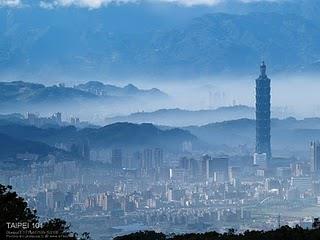‘This is a critical moment in the development of long-term relations. We should seize the opportunity to work together’. Since his election in 2008, President Ma tries to mend relations with mainland China. Not all Taiwanese are convinced by Ma’s diplomacy; the results of important elections on November 27 will show how the Taiwanese people think about it.
Taiwan hopes ECFA will smooth the path towards signing free trade agreements with other countries in an effort to ensure that its export-oriented economy is not marginalised. Free trade deals between countries flourish across the world especially in Asia; an effect of the stagnation of the WTO negotiations, the so called DOHA Round. There exist already trade agreements between China and ten member-states of ASEAN (a market of 1.7 billion people!) and between ASEAN and Japan, Korea and India. Taiwan’s deal with China will open the way for FTA’s with these countries which so far were afraid to damage their relation with China. Recently free trade talks with Singapore have already been started.
The new trade agreement between Taiwan and mainland China will end tariffs on hundreds of products traded across the Taiwan Strait and give Taiwanese companies access to eleven sectors in the mainland including banking, accounting, insurance and hospitals. ECFA is expected to improve bilateral trade that totals about $ 110 billion a year, with $80 billion worth of goods flowing to China and $30 billion to Taiwan. The Washington-based Peterson Institute for International Economics believe the agreement could add a net of 5.3 percent to Taiwan’s economy by 2020.
In the last week of August the first mainland company, Yangzijiang Shipbuilding China’s fourth biggest shipmaker, set to sell shares in Taiwan, a big boost to the island’s stock exchange. This listing shows that Taiwan has raised its international profile in the wake of the improvements in cross Strait relations.
The expectation is that by ECFA Taiwan’s competitiveness will be enhanced and can be an interesting incentive for foreign business to invest in Taiwan. Although Taiwan’s wages are higher than on the mainland, foreign business will take also into consideration Taiwan’s recently lowered corporate income tax (from 20 to 17 percent, putting it on a par with Singapore). An important step forward is that Taiwan has gained a high level of international credibility by acceding to the Government Procurement Agreement (GPA).
The ECFA deal was signed in the mainland city of Chongqing, a location with an evocative history. Mao Zedong, the Communist leader, and Chiang Kai-shek, the Nationalist president, tried to negotiate a truce thereafter the World War II but failed… Now the deal is a victory for both countries China’s President Hu Jintao has sought to move beyond the threatening rhetoric that characterised Beijing’s response to Taiwan’s refusal to unify with the mainland. His government has talked of ending the state of hostility with Taiwan and negotiating a peace treaty. In Chongqing the representative of Beijing called ECFA an agreement of ‘equal consultation and mutual benefits’.
While the deal was hailed by business leaders and analysts, concerns about ECFA raised in Taiwan. The opposition and some union leaders fear consequences of moving economically closer to China: ‘ECFA will result on an influx of cheap labour and goods from China into Taiwan and will endanger the country’s sovereignty’. The opposition asked vainly for a referendum regarding the agreement with China. Anyhow, the important elections for the mayors of five major municipalities (Taipei, New Taipei City, Taichung, Tainan and Kaohsiung), November 27, will show how happy the Taiwanese people are with the results of President Ma’s policy. It will be the litmus test.
ECFA: Equal consultation and mutual benefits
The end of June mainland China and Taiwan signed a tariff-cutting trade agreement, the so-called Economic-Cooperation Framework Agreement (ECFA) that aims to deepen economic ties and ease tensions between the two countries. The deal is a high point in the ‘cross strait’ policy of President Ma.


Taiwan hopes ECFA will smooth the path towards signing free trade agreements with other countries in an effort to ensure that its export-oriented economy is not marginalised.




